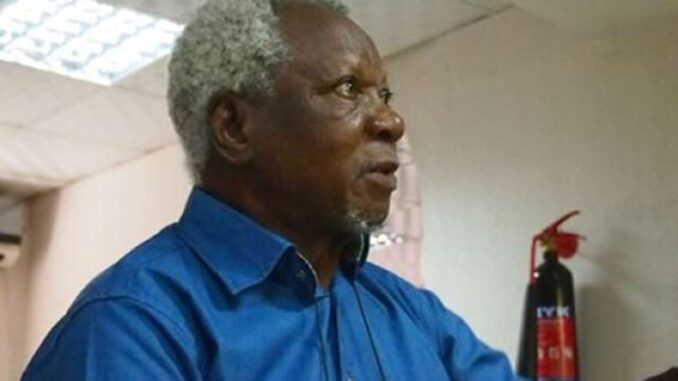
Consequently, in Bikoroa, instead of a radical abolition of the prevailing social structure, there is a perennial irenic dash towards coalition and consensus. This overall view that we discover in the web of social relations in The Bikoroa Plays is not entirely strange in defining the possibilities of J.P. Clark’s aesthetics and politics, particularly, in his dramas. Whether as performed or read, although they speak of Clark’s activism on behalf of the marginalised and the disenfranchised through an art-form that turns the stage into a place for colloquy and colourful symbolism, the enduring social vision discernible in these plays is of an author for whom radical alternatives cannot be revolutionary collapse of society.
Clark’s sensibilities as an artist whether purely revealed in lyrical poetry, carved in romanticised imagery of rustic communities, or seeded into satirical ironies are foremostly a testament to a political vision that is outrageously against injustice but nevertheless seeks a consensus for what the future holds. Clark is assertive in his art and politics but, in a concrete measure, his works appear to live in that mid-house between ultra-conservatism and a radicalism in which the future of society is peculiarly uncertain, if not negotiated with care and consensus. In this guise, Clark’s art and politics are also integrative – albeit innovatively so. Witness the mixture of aesthetic forms and provenances in his poetry and dramas, take a look at his controversial but hardly revolutionary searchlight on politics and history in Nigeria and globally.
However, there is in J.P. Clark a pre-eminent “third way” – his way – that is carefully structured to stir the argument but leave it largely unresolved and pointing towards consensus and coalition, rather than disharmony and conflagration. Is this a weakness or strength? Must committed art be only that form that is incendiary and politically overt? Is committed art merely that form of protest writing that has Marxian goals and creedal strategies as its terrain? Perhaps, the value of Clark’s way is its universal detachment from political absolutes and irreverence for any art that is laced to something of a political slogan.
Humanity – uncensored, idyllic and recreated in eternal simplicities – is at the heart of Clark’s way and this may yet prove the longlasting legacy of Clark-Bekederemo in the annals of African, nay, global literature. THE IRENIC CLARK – A Tribute by Kemi Atanda ILORI Page 4 of 4 J.P. Clark has been described as one of the four greats of Nigerian literary authors in English in the immediate post-Independence era – the others being Christopher Okigbo, Chinua Achebe and Wole Soyinka. In the defining cataclysm of their era, the Nigerian Civil War (1967-1970), Christopher Okigbo dropped his pen and took up arms in defence of Biafra and perished in the Nsukka sector of the war. Chinua Achebe spent time as a cultural ambassador and apologist for the Biafran cause and Soyinka spent considerable time in solitary confinement for his role in seeking to find “the third way” to avoid or ameliorate Biafran secession. In contrast, J.P. Clark remained in his teaching post at the University of Lagos. His beloved Niger Delta, because of its oil and gas reserves, was a precious spoil that the opposed Nigerian and Biafran forces fought bitterly over.
Clark chose to stay within Nigeria, undoubtedly traumatised by the wanton bloodshed and widespread destruction occasioned by the war, as revealed in his war volume, Casualties: Poems 1966– 68 (1970). Although his position was controversial and his poetic reflections greatly misunderstood and misjudged by people he describes as his “flockmates” in his reminiscences, Clark in his dramas and life deconstructs society’s crises as a watershed to acknowledge grievances, not to escalate them, and to invoke ethical sanctions in which restorative justice allows a coalition of mutual interests and not a revolutionary collapse of society’s mainstay.
The irony of Clark’s position is reflected in his dramas where consensus often breaks down because society cannot be cured without its boils being lanced. But who really can say that historically revolutions have always produced a better society? In his typical but undervalued political insight, on 5 March 1986, Clark-Bekederemo summoned Soyinka and Achebe for the trio to meet Ibrahim Babangida, the Nigerian military President, to spare the life of Mamman Jiya Vatsa and others who had been found guilty of coup-plotting and were awaiting execution by firing squad. Their agency proved futile, as the condemned men were shot that evening, but it underlined J.P Clark’s humanity – certainly, the irenic Clark.
Concluded.
Ilori, former lecturer at Obafemi Awolowo University Ile-Ife, is the publisher and Editor in Chief at the Universal Books, U.K.
END

Be the first to comment